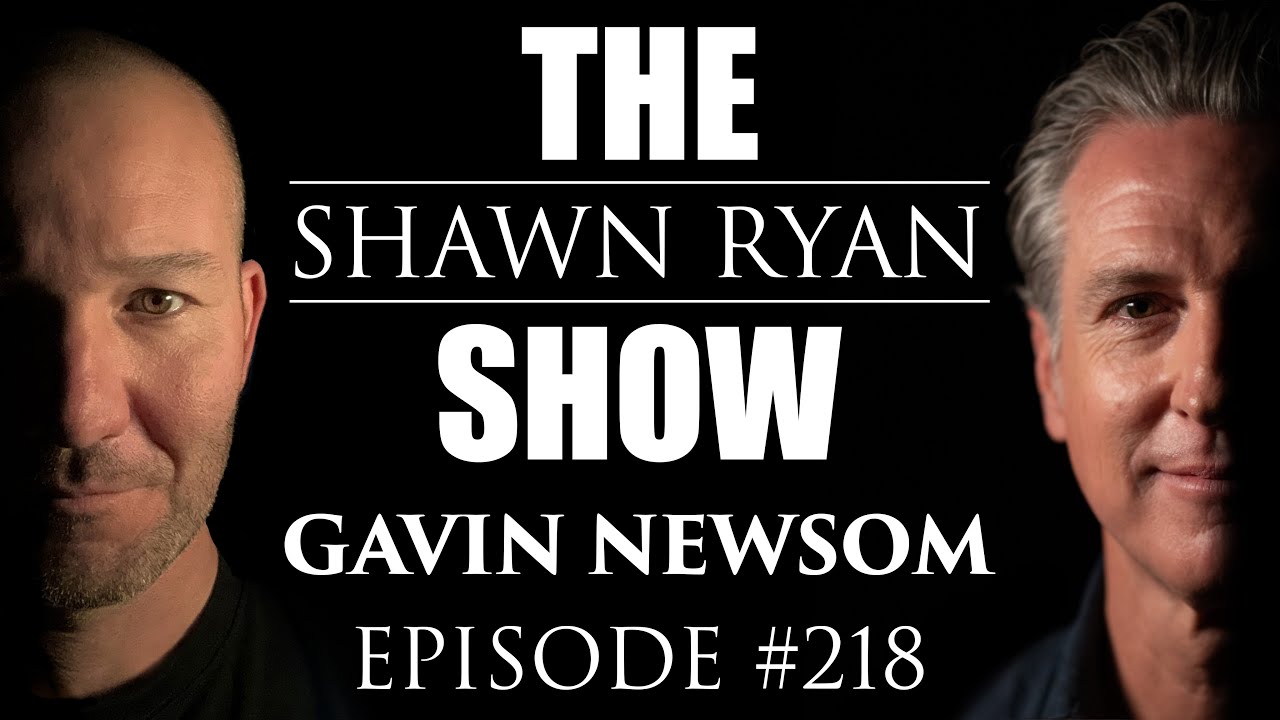Politics
California Governor He’s ‘All In’ On Psychedelic Therapy Access, But Worries About Capitalists Commercializing It

California’s governor says the state is “all in” when it comes to expanding access to psychedelics for therapeutic use, explaining that the current challenge is “landing the plane on exactly what the language looks like” in terms of psychedelics reform.
Speaking to Shawn Ryan, a former U.S. Navy SEAL who now hosts a podcast focused on military and veterans issues, Gov. Gavin Newsom (D) said he’s on board with medically supervised use of psychedelics, though he still has concerns about commercializing the substances.
“The downside for me is I have a lot of entrepreneurial friends that are eager to get in this space,” Newsom said. “I’m cautious, because I can see capitalism move this in a very different direction than where we want to move it.”
The governor in 2023 vetoed a broad psychedelics proposal that included provisions to legalize low-level possession of substances such as psilocybin.
In his veto message at the time, he called on lawmakers to send him a new bill the following year establishing guidelines for regulated therapeutic access to psychedelics and also to consider a “potential” framework for broader decriminalization in the future.
“Both peer-reviewed science and powerful personal anecdotes lead me to support new opportunities to address mental health through psychedelic medicines like those addressed in this bill,” Newsom’s veto message said. “Psychedelics have proven to relieve people suffering from certain conditions such as depression, PTSD, traumatic brain injury, and other addictive personality traits. This is an exciting frontier and California will be on the front-end of leading it.”
Since then, however, progress on psychedelics reform in the state has lagged.
Last year, for example, a Senate committee effectively killed a bill to legalize psychedelic service centers where adults 21 and older could access psilocybin, MDMA, mescaline and DMT in a supervised environment with trained facilitators. The bill was crafted in a way meant to be responsive to Newsom’s concerns voiced in his earlier veto message.
This past May, a Senate committee also declined to advance a bipartisan bill that would have created a psilocybin pilot program for military veterans and former first responders.
On the recent podcast with Newsom, Ryan said that he personally benefitted from ibogaine therapy in Mexico. “Haven’t drank for three years,” he said. “It’s like a light switch when I did ibogaine in Mexico.”
“We’re all in,” Newsom replied, but added that the devil is in the details.
Pointing to cannabis legalization in the state, which he supported at the time, Newsom said that policymakers “believed in a regulatory market” but noted that officials “still haven’t killed the black market” and that taxes “create a lot of raw feelings.”
Separately last year, Newsom signed a bill into law meant to streamline the processing of applications to study psychedelics and marijuana.
As for cannabis taxes, meanwhile, state senators earlier this month advanced a bill to put a pause on a newly enacted take hike on marijuana products.
Members of the Senate Revenue and Taxation Committee voted 5–0 to approve the Assembly-passed measure from Assemblymember Matt Haney (D) that would delay the tax increase by five years.
Meanwhile, California officials are inviting research proposals for a second round of grants under a program meant to better educate the public on the state’s marijuana law and help policymakers make informed decisions on the issue.
Last month, the Governor’s Office of Business and Economic Development (GO-Biz) announced the recipients of over $52 million in community reinvestment grants to nonprofits and local health departments, also funded by marijuana tax revenue.
That marked the seventh round of cannabis-funded California Community Reinvestment Grants (CalCRG) under the state program.
Legalization in California has created a number of new grant programs aimed at addressing the consequences of marijuana prohibition and attempting to nurture a strong, well-regulated legal industry.
California’s Supreme Court separately delivered a victory for the state’s marijuana program last month, rescinding a lower court ruling in a case that suggested federal prohibition could be used locally to undermine the cannabis market.
The state Supreme Court ruling also came just weeks after California officials unveiled a report on the current status and future of the state’s marijuana market—with independent analysts hired by regulators concluding that the federal prohibition on cannabis that prevents interstate commerce is meaningfully bolstering the illicit market.
The governor did sign a bill in 2022 that would have empowered him to enter into interstate cannabis commerce agreements with other legal states, but that power was incumbent upon federal guidance or an assessment from the state attorney general that sanctioned such activity.
Image courtesy of CostaPPR.




